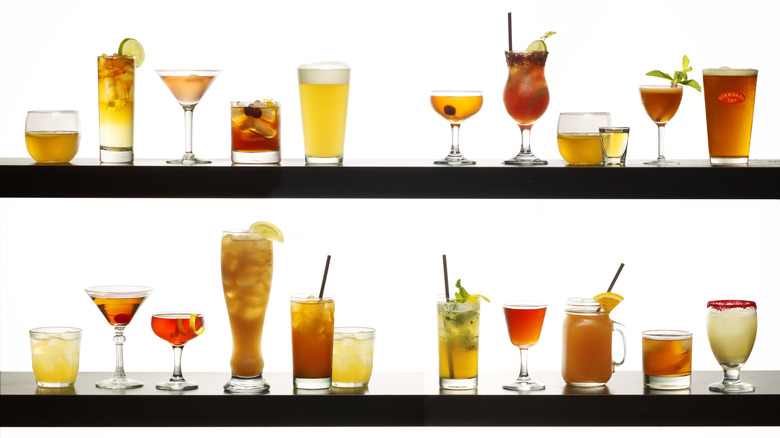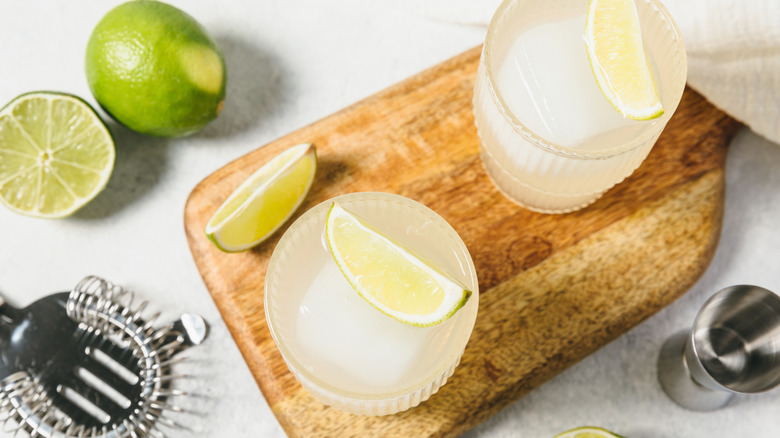Learning To Make One Cocktail Can Seriously Improve Your Mixology Game
We may receive a commission on purchases made from links.
Mixology is a complicated science, as any aspiring home bartender will figure out quickly. There are so many moving parts when it comes to crafting cocktails that the learning process can quickly get overwhelming. What type of cocktail glasses should you use for which drink? Are garnishes even necessary, and which ones best complement which spirits? Some of this is established fact handed down in educational materials and by teachers, but some of it is simply a matter of refining your palate and getting a feel for what tastes good.
To that end, Foodie chatted with cocktail maker and visual storyteller Jordan Hughes, who slings drinks on Instagram as the High-Proof Preacher. He also penned "Twist: Your Guide to Creating Inspired Craft Cocktails." Suffice it to say, Hughes knows his drinks. He opines that there is a single classic cocktail that budding mixologists should work hard to perfect: the Daiquiri. Why this one? "This is a masterclass in balancing flavors and ingredients, and will impact how you think through and build future cocktails," he explains. In other words, if you can master this stalwart, you will unlock skills that carry over into a slew of other recipes.
What can we learn from a basic Daiquiri?
A plain-Jane Daiquiri, also called a "Daiquiri Sour," is probably not what you first picture in your head when you imagine the cocktail. That blended, Technicolor slush spinning in a tiki bar drink dispenser is actually a far-flung twist on the classic recipe. But it's the Daiquiri Sour that Hughes insists is essential to learning how to tinker with ingredient ratios and developing a sense of how more/less of certain ingredients affect the ultimate flavor of a drink.
"A classic Daiquiri is just quality rum, fresh lime juice and simple syrup, shaken with ice, strained and served up without ice," Hughes explains. He lays out the basic ratios — "2 oz rum, ¾ oz fresh lime and ¾ oz simple syrup" — but encourages experimentation. Switching up the quantity of syrup or lime by just a fraction, Hughes points out, can change the end result dramatically. What flavors are pleasing to you? Essentially, you should make minute changes to different elements of the formula and study them like a chemist. In this way, you will gain an invaluable knowledge of how subtle tweaks to any cocktail recipe can customize the drink and make it your own.
As a side note, Hughes mentions that another classic, the Old Fashioned, works well for similar experiments in amateur bartending. Knowing how to use simple syrup in an Old Fashioned is an art unto itself, so it's no mystery why Hughes recommends this cocktail as one that's ripe learning.

